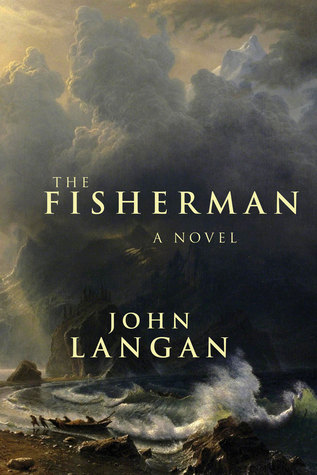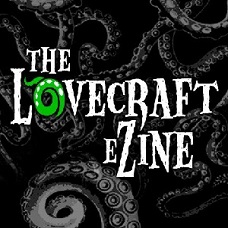 Yesterday, I finished my third book of the new year. I enjoyed John Langan’s short story collection, The Wide Carnivorous Sky and Other Monstrous Geographies, so much that I wasted almost no time reeling in his most recently published novel, The Fisherman. After consuming the work in under a week, I can safely say that it includes everything I enjoyed in his short fiction while adding new layers of horrifying goodness.
Yesterday, I finished my third book of the new year. I enjoyed John Langan’s short story collection, The Wide Carnivorous Sky and Other Monstrous Geographies, so much that I wasted almost no time reeling in his most recently published novel, The Fisherman. After consuming the work in under a week, I can safely say that it includes everything I enjoyed in his short fiction while adding new layers of horrifying goodness.
The narrative follows Abe, an extremely likable widower, as he recounts the haunting experiences and myths surrounding the mysterious Dutchman’s Creek. Here I must pause to deliver an amusing anecdote. While listening to The Fisherman via audible, en route to Philadelphia with my wife, I couldn’t help adding my own soundtrack of “Dun Dun DUN” to the story as Abe recounted the first time he heard about Dutchman’s Creek from his friend, Dan. Immediately after I finished my theme, the narration stated, “If this had been a movie, I guess this would’ve been the moment ominous music boomed on the soundtrack.” My wife and I had quite a laugh, but I think that perfectly illustrates how well Langan knows his own story.
While Abe is the primary protagonist, most of the story is relayed by a different character. He is a cook who bears a striking similarity to H.P. Lovecraft. Besides both people being named Howard, the cook is also described as having a lantern jaw, being a writer, and coming from Providence. Putting all those things together paints a very particular picture, and I loved it. Howard relays the spooky story about Dutchman’s Creek’s origin that he was told by a minister, who heard the story from one of his parishioners in a nursing home. Much like a real fishing story, this one comes via several degrees of separation from the teller. As for the origins of Dutchman’s Creek, you’ll have to read The Fisherman yourself to get all the horrifying details, but I can’t help telling you that the antagonist of the novel is a kind of supernatural Ahab set on capturing a sea creature that would put Moby-Dick to shame.
During the novel, there were at least two references to some of Langan’s short fiction that I loved. The first was a kind of magical right of passage that two characters must make to a city patrolled by bird-like figures who should be familiar to those who read Outside the House, Watching for the Crows in The Mammoth Book of Cthulhu. The second was when Abe passes by the headless statue of a pregnant woman, which readers of Mother of Stone, the closing tale in The Wide Carnivorous Sky and Other Monstrous Geographies should recognize. These connections deepened my reading experience and made me hoot with amusement when I came across them.
Alright, I better stop rambling about how much I liked this novel, or we’ll be here forever. In summary, The Fisherman is a great read. It has a protagonist you love (imagine if Pet Sematary was told from the perspective of the kindly neighbor instead of the doctor), a classic Weird narrative (with enough spooky fish to please a resident of Innsmouth), loads of intricately detailed references (to other horror works, Moby-Dick, and more), emotional resonance (anyone who’s ever lost someone will find themselves connecting with the novel’s portrayal of grief), and lastly, it will keep you turning pages toward its appropriately disconcerting ending. I can’t recommend this novel enough if, like me, you’re a horror reader who leans toward the Weird.









